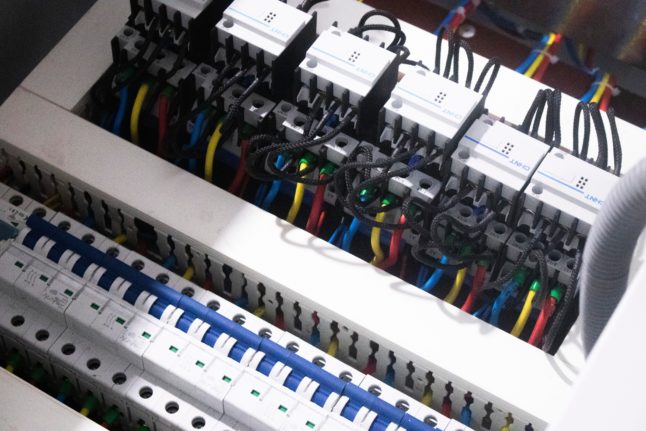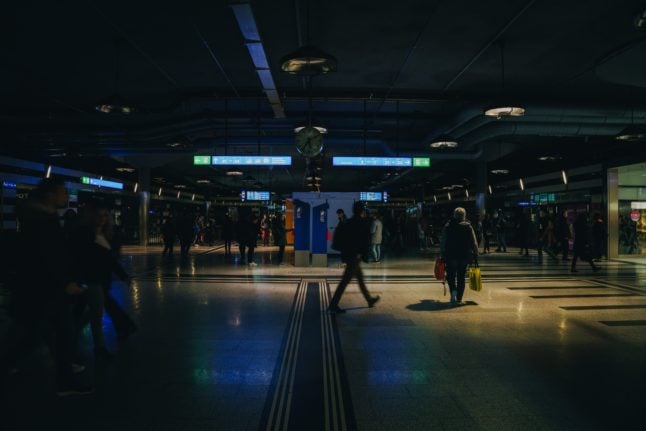When a large-scale power failure occurred in western Austria in August 2022, it affected supply in 33 municipalities, including the Tyrol capital Innsbruck and its surrounding areas.
The power outage happened at around 10:45 am and lasted less than one hour, but was enough to leave thousands of households without energy, affect tram lines and shut down traffic lights, according to the daily Tiroler Tageszeitung.
READ ALSO: REVEALED: What is Austria’s emergency plan if Russia cuts gas supply?
So what to do in the event of a power failure?
Following the outage, Austrian power suppliers shared tips and the proper procedures to follow during power failures.
According to Wiener Netze, if the electricity in your apartment or house fails, it is essential to keep calm. There are six steps you need to follow.
The first is to create light by getting a flashlight or candle or activating the flashlight function on your smartphone. “This allows you to orient yourself in the rooms and reduce the risk of injury”, the company said.
Tyrol’s Tinetz company also highlights that a power shortage is not an emergency, “so do not call emergency services such as fire brigade, ambulance, or similar”.
READ ALSO: Who to call and what to say in an emergency in Austria
Then, you need to try and access who is affected by the power failure. Just look out the window to see if there is still light in your street – you can also ask your neighbours if they have electricity at home.
If you are the only one affected, check whether individual fuses have failed and see if any fuses are set to off. If that is the case, you need to simply flip the levers again or replace old fuses with new ones.

You should immediately unplug electrical appliances that no longer work and replace them with new devices once you have energy back on.
READ ALSO: Cost of living: How to save money on energy bills in Austria
If other apartments or houses are also affected, you need to contact your local power grid disruption line (in Vienna, that would be calling 0800 500 600, in Tyrol, the number is +43 0 50708 123). The line should be available around the clock to immediately take care of the damage.
The local power supply companies also provide websites to check for any failures. For Vienna, you can check here. In Tyrol, here.
What to do after the power failures?
You must check your electrical appliances once the power supply is resumed.
Ensure that the last switched-on devices (such as an iron or a boiler) are switched off. If your power supply was interrupted for more than six hours, you should empty the refrigerator.
Your gas boiler automatically resumes working after a power failure. If not, turn the main switch off and on again or contact the device manufacturer.
READ ALSO: EXPLAINED: Is it worth switching to solar power in Austria?
Check all clocks that work with electricity to update the time. Also, check if any electrical devices no longer work – they should be taken to a repair shop or disposed of.
How do I prepare for a power outage?
You can prepare for a possible power failure.
First, it is important to get familiarised with the fuse box (including the key to it) in your home. You should also keep replacement fuses at hand and ensure that you have sufficient battery power for your alarm systems in case of prolonged failures.
You should also keep a flashlight with working batteries and the telephone number of your local power grid malfunction line in case of any emergencies.
If you don’t have a battery-powered radio, you can check the news with the radio on your car or even use the station’s app on a smartphone.
READ ALSO: Wild weather in Austria: How to protect yourself during summer storms



 Please whitelist us to continue reading.
Please whitelist us to continue reading.
Member comments